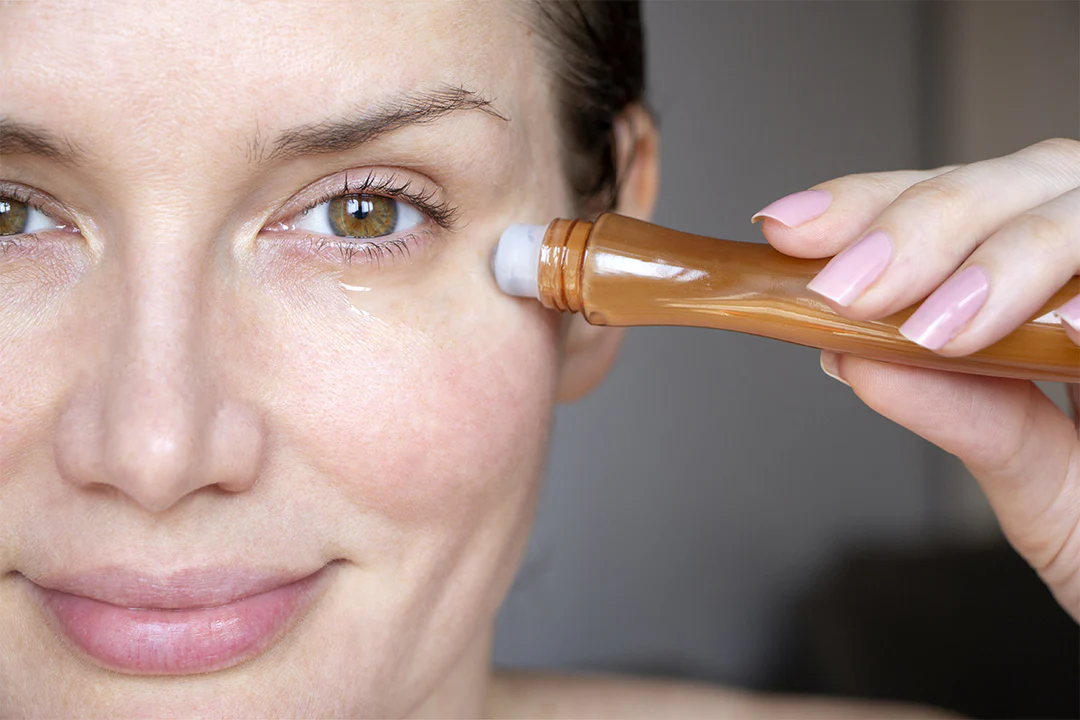
What products can be used with retinol?
Whether you’re just starting your skincare routine or you’re a die-hard super fan, retinol is one of those ingredients that everyone wants to know more about. That’s why today we’re going to focus on which products can be used with retinol, and with any luck, you’ll all be skin experts by the end of today’s blog post.
What can retinol be used with?
Retinol is a potent form of vitamin A that’s praised for its anti-aging benefits, as well as other properties that promote overall skin health. Whether you’re new to your retinol journey or your skin type is particularly sensitive, it’s best to avoid exfoliating ingredients that contain retinol. I’m referring to AHAs and BHAs, like glycolic and salicylic acid, as well as physical exfoliants. This helps prevent over-irritation of the skin.
The best skincare formulas to use with retinol are moisturizers and serums that are rich in hydrating ingredients like hyaluronic acid and niacinamide. If you use it at a different time of day than retinol, you can also incorporate other powerful ingredients, like the ever-popular vitamin C, into your routine.
Finally, the most important product to use with retinol is a daily SPF of 30 or higher. Due to the increased sensitivity of the skin to light when using retinol, it is crucial to ensure that the skin barrier is protected from damage caused by free radicals such as UV rays and pollution.
Can retinol and hyaluronic acid be used together?
Of course, in fact, many skin care experts recommend using these two powerful ingredients together to combat the common drying effects of retinol.
If you use hyaluronic acid and retinol together, I recommend using the retinol product first and then a hyaluronic acid-rich serum. This allows the retinol to penetrate the skin and boost collagen production, reversing signs of aging, restoring skin’s radiance and reducing breakouts or blemishes. When you follow up with hyaluronic acid, you’ll find that this clever moisturizer can draw moisture from the air around your face and lock it on the skin’s surface. This keeps the skin barrier healthy, hydrated, and protected from daily aggressors.
Can I mix niacinamide with retinol?
You actually can. For those with oily and acne-prone skin, applying niacinamide to the skin before retinol is considered an extremely effective way to regulate the skin’s sebum production and prevent blemishes.
An added benefit of combining niacinamide with retinol is that the hydrating effects of niacinamide help to moisturize the skin and fight dryness, redness, itching, and flaking, all of which are common side effects when using retinol.
Can Vitamin C and Retinol be used together?
Not really, and while both ingredients work great for your complexion, using them together is considered a no-no when it comes to keeping your skin healthy. The power of each ingredient can overload the skin and cause irritation. You can, however, use both vitamin C and retinol in your skin care routine. All you have to do is apply each powerful ingredient at the optimal time of day. Vitamin C is packed with antioxidants, making it a great addition to your morning routine. Antioxidants help keep your skin barrier as healthy as possible, meaning it fights off any free radicals your skin comes into contact with. These free radicals, such as pollution, bad climates, central heating and UV rays, can cause a lot of skin damage, which can get worse if left untreated.
This damage includes hyperpigmentation, dark spots, acne and signs of premature aging. While vitamin C protects the skin from these free radicals throughout the day, retinol repairs any damage they have previously caused. The main difference is that retinol should not be used during the day, as any exposure to UV rays will cause the active form of vitamin A to become completely useless.
Can I use a salicylic acid cleanser with retinol?
Yes and no, what I mean is that you can actually use a salicylic acid cleanser with retinol, but remember to use it at the right time of day. Since both ingredients are so potent, it’s best to allow enough time between applications. This not only balances the skin’s natural pH, but also ensures that each ingredient can fully work to its full potential.
For best results, I recommend using a salicylic acid cleanser in the morning and then retinol in the evening. If you want to learn more about using salicylic acid cleansers with retinol, we actually have a detailed blog post on Beauty Insider.
Can retinol be mixed with moisturizer?
Yes, you can, as long as the moisturizer doesn’t contain any active ingredients that could cause irritation. The beauty of mixing retinol with a moisturizer is that you are creating a physical barrier on the skin due to the thick formula of the moisturizer. This ensures that the skin and any products used underneath are protected and can do their job without being disturbed by environmental influences such as harsh weather and climate.
They also ensure that the skin feels healthy, happy, and fully hydrated!
Today I hope to have answered some of your questions about products that can be used with retinol. If you have any skincare questions, don’t forget to visit us on Instagram for daily skincare tips, new product launches, and exclusive discounts. You can find me in DMs, so come on over and say hi!


